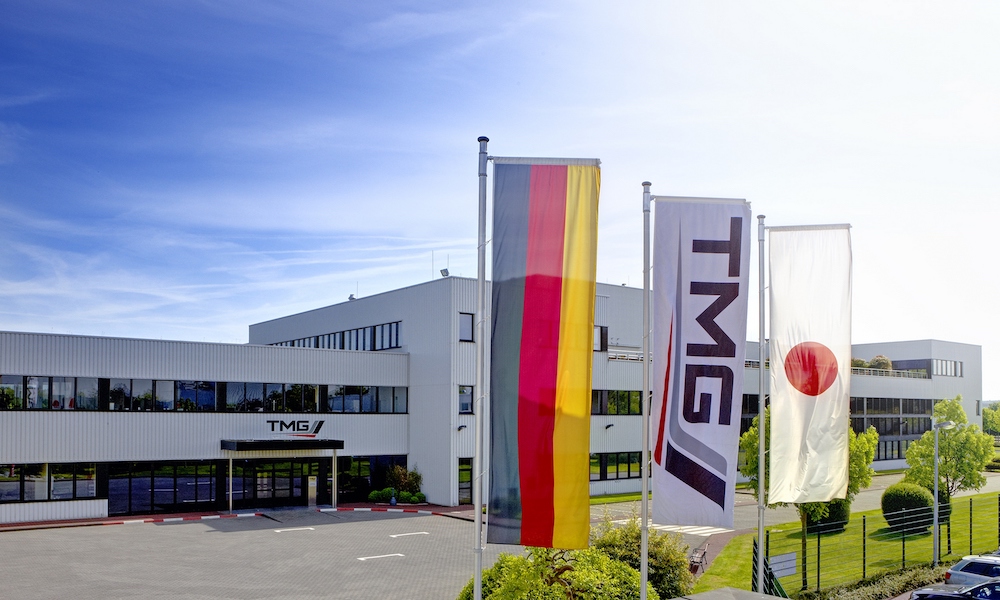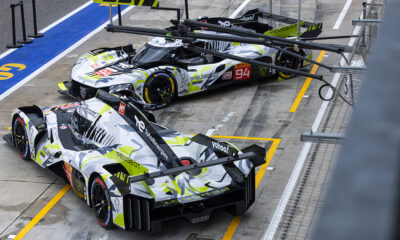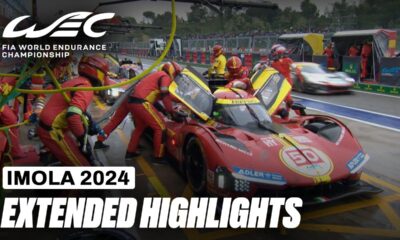
Photo: Toyota
The coronavirus pandemic is having a “huge” impact on Toyota’s Le Mans Hypercar program development, along with other Toyota Motorsport GmbH projects in Cologne.
TMG vice president and sports car team director Rob Leupen has said that disruptions to supply chains are adding an extra challenge to Toyota’s LMH progress, despite the likely delay to the race debut of the FIA World Endurance Championship’s new top formula.
The postponement of the 24 Hours of Le Mans to September has put the final round of the 2019-20 season two weeks later than the projected 2020-21 season-opener at Silverstone.
The LMH formula will replace LMP1 at the start of 2020-21 while Toyota is continuing in the WEC’s top class with a new hybrid-powered prototype of its own design.
“The impact is huge,” Leupen told Sportscar365 when asked about how the pandemic is affecting the project.
“If we could delay the rollout from our side, we would gain time. But the problem is that we aren’t getting materials and we don’t have a high level of efficiency right now.
“We don’t know when we will get the gearbox or the materials to finalize the monocoque. It affects everything.
“It doesn’t reduce time pressure. At the present moment, I rather have the impression that it will increase the time pressure unless the start of the season will be moved way back, which is potentially possible because Le Mans takes place at the end of September.
“If Le Mans takes place at the end of September, there’s no chance for us to start the new regulations at the start of September at Silverstone.
“It affects everywhere, but it doesn’t give you an advantage. At the moment, it gives a big disadvantage because we’re not able to plan longer than a few days ahead.”
Toyota’s LMH program had already been under heavy time pressures because the new formula’s regulations were not finalized until last June.
“We are late and we’re getting later,” admitted Leupen.
“The parts deliveries are delayed, and the material is delayed. It does have an effect.
“From my point of view, it will ultimately influence the whole development of the project and the start of the new season.”
However, Toyota forecasts no current issues in sourcing the LMH hybrid powertrain from its own Higachi-Fuji facility in Japan.
“Maybe we might have an advantage on this because Japan, as we know, is not as much affected at the moment [compared to Europe],” said Leupen.
“From that point of view, it’s not difficult to ship parts by plane or road. This is coming along quite well.
“But this is not the main concern. The main issue is to keep everyone as healthy and fit as possible, and then to see what the implications are to the world economy.”
TMG Still Operational and Adapting to Changes
Leupen confirmed that TMG’s facility remains open at present, although half of the personnel are now working remotely as a result of quarantines and travel restrictions.
Most of the parts production staff are still operating on-site, while those in desk-based positions have been encouraged to work from home.
No cases of COVID-19 have been reported at the Cologne plant.
“For two weeks we have changed some activities within TMG,” explained Leupen. “We have boosted home office functions for those who are able to work from home. This includes designers, calculation engineers and others.
“We are anticipating the situation fully and complying with the German rules and regulations which have been set out here. But it does affect our daily lives and our targets in all aspects.
“We have reduced the presence in the company by 50 percent of the people. The distance between people in the facility is bigger. It will affect productivity, of course.”
Leupen explained that the pandemic’s impact on Germany’s neighboring countries is affecting supply routes into Cologne.
Italy and France have been significantly affected by the virus while their national governments have enacted ‘lockdown’ scenarios in an effort to control the spread.
The German government has enforced strict social distancing, banning public gatherings of more than two people, while businesses that remain open have been told to implement protective measures.
“Very simply, if a part which would come from the north of Italy does not come, that means the project comes to a halt,” said Leupen.
“When it comes to a halt, the question is when can it get started again? For example, our pre-impregnated carbon fiber material will run out of stock soon because our supplier cannot deliver.
“It means we have to look for alternatives and we are talking to other companies and competitors which might not be affected. We are trying to help each other out.
“The limitations are there and affect all projects. Not only do we do WEC, but we also do WRC and GT4. We are working with a lot of projects for Toyota-related activities and it’s all affected.”
Toyota’s TS050 Hybrid LMP1 cars are set to return to Cologne on Tuesday, following their shipment from the canceled 1000 Miles of Sebring WEC round.






















